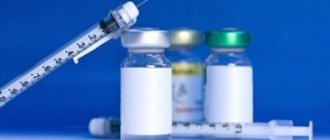Do I need to do this when planning?
Before planning a pregnancy, every woman must donate blood for a test that detects the presence of antibodies to the measles virus. If it shows that they are absent, then the expectant mother needs to be vaccinated. Currently, Russia has a vaccination schedule against measles.
Preventive vaccination is given twice: the first time at the age of 12 months, the second at 6 years before entering school. An adult woman needs vaccination if she has not yet reached the age of 35 and has not previously been vaccinated.
A woman may doubt the need for the procedure, however, she should remember that during pregnancy the body’s immunity decreases. A virus that has lived in the body for years and has not shown itself in any way can begin to multiply and attack not only the mother’s body, but also the child. In 20% of cases, when a woman contracts measles, pregnancy is terminated or fetal malformations occur.
Measles is a risk factor for the occurrence of the following conditions in a child after a pregnant mother becomes ill:
- intrauterine hypoxia;
- hydrocephalus;
- pneumonia;
- blindness;
- deafness;
- underdevelopment of the limbs;
- mental retardation;
- heart failure.
Therefore, when planning a pregnancy, the doctor recommends that all women undergo a course of vaccination against various diseases , including measles.
Attention! There is a government regulation that requires all people between the ages of 25 and 35 to be vaccinated against measles.
When to put it?
The expectant mother should make sure in advance that she has all the necessary vaccinations. Measles vaccination should be carried out at least 3 months before the expected pregnancy. This is due to the fact that the drug contains a live virus, which can have a bad effect on the fetus. Vaccination takes place in two stages with an interval of 3 months. If a woman has previously been immunized once, then only one vaccination will be needed.
Vaccinations and pregnancy
The risk of vaccination during pregnancy is rather theoretical. The benefits of vaccinating pregnant women usually outweigh the potential harm when:
- there is a high probability of contracting the disease;
- the infection poses a particular threat to the mother or fetus;
- The vaccine is unlikely to cause harm.
As a rule, vaccination with live vaccines (against measles, mumps and rubella; chickenpox, polio) is contraindicated in pregnant women due to the theoretical risk of transmitting the weakened virus to the fetus. If a pregnant woman has been vaccinated or becomes pregnant within 3 months after vaccination, she should be warned about the possible consequences. Nevertheless, the question of termination of pregnancy is usually not raised.
Rabies vaccination during pregnancy
Possibility of use in pregnant women: yes
Since rabies is almost always fatal, vaccination is vital. In addition, no relationship was found between rabies vaccination and abnormalities in fetal development.
Vaccination against hapatitis A during pregnancy
The safety of the hepatitis A vaccine has not been proven.
But since the vaccine consists of an inactivated virus, the theoretical risk of fetal harm is low. When deciding whether to vaccinate, the potential risk of vaccination must be weighed against the risk of infection.
Vaccination against hepatitis B during pregnancy
Possibility of use in pregnant women: yes.
According to available research, vaccination against hepatitis B does not pose a risk to the fetus. The hepatitis B vaccine is recommended for women at high risk for hepatitis B. All pregnant women should be screened for rubella immunity and tested for the presence of antibodies to the hepatitis B virus. If a pregnant woman is infected with the hepatitis B virus, Make sure your baby receives hepatitis B immune globulin and begins a series of hepatitis B vaccines immediately after birth.
In Temirtau, students were hospitalized after vaccination
Flu vaccine during pregnancy
Possibility of use in pregnant women: yes.
Getting the flu in the 2nd and 3rd trimesters of pregnancy can cause very serious complications. Therefore, in many countries it is recommended to vaccinate pregnant women at these times. Women who are at high risk of complications from influenza should be vaccinated regardless of their stage of pregnancy. Studies on more than 2,000 pregnant women have shown no adverse effects on the fetus.
Yellow fever vaccination during pregnancy
There is currently no data on the safety of the vaccine. Therefore, pregnant women are not recommended to get vaccinated against yellow fever. It is recommended to postpone visits to countries with a high risk of infection until after childbirth. However, if a pregnant woman must travel to areas with a high incidence of yellow fever, she should be vaccinated against the disease. In such situations, the potential harm from vaccination is incomparably less than the risk of contracting yellow fever.
Vaccination against measles during pregnancy
Possibility of use in pregnant women: no
Confirmed pregnancy is a contraindication to the administration of vaccines against rubella, measles and mumps. But despite the theoretical risk, there have been no cases of congenital rubella or birth defects resulting from administration to women who have not previously been vaccinated and received rubella vaccine during pregnancy. People who have received measles, mumps, or rubella vaccines can shed these viruses but cannot infect others. These vaccines can be given safely to the children of pregnant women.
Vaccination against rubella during pregnancy
Possibility of use in pregnant women: no
Confirmed pregnancy is a contraindication to the administration of vaccines against rubella, measles and mumps. But despite the theoretical risk, there have been no cases of congenital rubella or birth defects resulting from administration to women who have not previously been vaccinated and received rubella vaccine during pregnancy. People who have received measles, mumps, or rubella vaccines can shed these viruses but cannot infect others. These vaccines can be given safely to the children of pregnant women. Pregnant women who are not vaccinated against rubella should receive the vaccine immediately after delivery.
Vaccination against meningitis during pregnancy
Possibility of use in pregnant women: yes
Research has shown that vaccination against meningitis is safe and effective.
Mumps vaccine during pregnancy
Possibility of use in pregnant women: no.
Confirmed pregnancy is a contraindication to the administration of vaccines against rubella, measles and mumps. But despite the theoretical risk, there have been no cases of congenital rubella or birth defects resulting from administration to women who have not previously been vaccinated and received rubella vaccine during pregnancy. People who have received measles, mumps, or rubella vaccines can shed these viruses but cannot infect others. These vaccines can be given safely to the children of pregnant women.
Vaccination against pneumococcus during pregnancy
The safety of the pneumococcal vaccine in relation to the fetus has not been studied. However, women accidentally vaccinated against this disease gave birth to healthy babies. Pneumococcal vaccines are recommended for women who are at high risk for infection and complications of pneumococcal diseases.
Vaccination against polio during pregnancy
Although no side effects have been reported with polio vaccines in pregnant women, pregnant women should not be vaccinated. However, if a pregnant woman is at high risk of contracting polio, she should be vaccinated. Although the live polio vaccine virus is released by vaccinated individuals who have received OPV (especially after the first dose), this vaccine can also be given to the children of pregnant women, since practice has not yet shown any danger of the polio vaccine virus to the fetus.
Vaccination against tetanus and diphtheria during pregnancy
Possibility of use in pregnant women: yes
Tetanus and diphtheria toxoids are the only immunobiological agents whose administration is routinely indicated for unvaccinated pregnant women. Previously vaccinated pregnant women who have not received tetanus toxoid within the past ten years should receive a booster dose of this drug. Pregnant women who are not vaccinated against tetanus, or who are not fully vaccinated, should complete the initial series of vaccinations.
Recommended vaccination period: second trimester
Vaccination against typhus during pregnancy
No data available for use in pregnant women
Vaccination against tuberculosis during pregnancy
Possibility of use in pregnant women: no
Although no unwanted side effects were noted, use in pregnant women is contraindicated
Vaccination against cholera during pregnancy
Possibility of use in pregnant women: There is no data on use in pregnant women
Vaccination against encephalitis during pregnancy
No data available for use in pregnant women
Vaccination against plague during pregnancy
No data available for use in pregnant women
Passive immunization during pregnancy
Currently, there is no data indicating that passive immunization of the mother with immunoglobulin is harmful to the fetus.
How is it tolerated?
The measles vaccine is easily tolerated. There is a natural reaction of the drug to the body, which you do not need to be afraid of. At the injection site, a lump may form and a feeling of pain may occur.
Among the most common symptoms is an increase in temperature up to 38 degrees. In more rare cases, a rash or conjunctivitis occurs. The listed symptoms are possible in the period from 5 to 6 and from 12 to 18 days after vaccination and persist for 2-3 days.
Why can't you get pregnant after vaccination?
You cannot become pregnant immediately after vaccination.
This is explained by the fact that during the post-vaccination period, the protective forces weaken: immune cells are actively engaged in recognizing and destroying the introduced virus. With this condition, a woman becomes susceptible to various diseases that can negatively affect the development of the fetus.
To protect against rubella infection, medications containing a live attenuated pathogen are used. A weakened virus can cross the placental barrier and negatively affect the embryo . The probability of fetal infection is 3%.
Another reason why you cannot get pregnant immediately after vaccination is the possibility of improper formation of specific immunity due to the increased load on the body. Therefore, it is recommended to use contraceptives for some time after rubella prevention.
Contraindications to vaccination
Like any medicine, the administration of the measles vaccine has contraindications:
- complication or poor tolerability of the previous dose of the drug;
- allergic reaction to aminoglycoside antibiotics, which are contained in small quantities in all drugs;
- allergic reaction to bird eggs;
- acute chronic disease during the period of exacerbation;
- immunodeficiency, including the condition after infectious diseases;
- elevated temperature;
- administration of blood, plasma or immunoglobulin within the last 8 weeks;
- oncological diseases.
How long before you can get pregnant after a rubella vaccine?
Antibodies to the rubella virus are produced within 1-2 months after the introduction of antigenic material.
During this entire period, it is recommended to avoid conception. Doctors have different opinions regarding the period of contraception. Some believe that after 1-1.5 months you can already move on to planning your baby. Others argue that the optimal period is 6 months. Most doctors allow you to not use methods to prevent pregnancy three months after vaccination.
Consequences
Complications and adverse reactions after measles vaccination are rare , however, they cannot be completely excluded.
Adverse reactions that do not require treatment:
- Temperature rises to 38 degrees. Occurs in 5-15% of women who receive the vaccine. Fever may last 1 or 2 days, in rare cases it lasts up to 5 days. In this case, an increase in temperature will not stimulate the immune system, so it is advisable to take antipyretics, for example, ibuprofen or paracetamol.
- Cough and sore throat. As a rule, it goes away within a few days without medical therapy.
- Rash. It may appear all over the body or only in some places.
- Enlarged lymph nodes. The symptom is caused by combination vaccines that contain the mumps virus.
- Mild infection. In this manner, a minor form of asymptomatic measles may occur after vaccination.
- Joint pain. The symptom mainly appears in adult women over 25 years of age.
The manifestations listed above reflect the processes of formation of an immune response to the measles virus occurring in the body and are not a pathology.
However, despite the safety of vaccination, in rare cases severe complications may occur , in which case a woman should consult a doctor:
- severe allergic reaction;
- convulsions;
- significant increase in temperature.
There are known cases of damage to the central nervous system, but the probability of such an adverse reaction is one in a million vaccinations.
There is also a disease called ITP (idiopathic thrombocytopenic purpura). It occurs in one in 22,300 people after vaccination and causes a rare form of bleeding disorder.
Should you get vaccinated or not: pros and cons
Women have different attitudes towards vaccinations. Some consider vaccination to be the only right decision to protect themselves and their unborn child from fatal pathologies. Others are wary of getting immunized because of the potential for side effects and complications.
Doctors insist on preventing rubella before pregnancy. To understand whether it is worth getting vaccinated, you need to consider and weigh all the pros and cons.
Arguments in favor of rubella vaccination before conception:
- vaccination forms stable and long-lasting immunity;
- The rubella virus is easily transmitted and can cause fetal death and the birth of a child with defects. More than 50% of children are born with health conditions incompatible with life. prevention allows you to minimize disastrous consequences;
- vaccine effectiveness reaches 100%;
- immunization is well tolerated by most women;
- availability of a choice of vaccines;
- availability of prevention;
- Under 25 years of age you can get vaccinated for free.
Arguments against immunization:
- the need to renew protective forces through revaccination;
- slow antibody production;
- the presence of a number of contraindications;
- after vaccination you cannot become pregnant for three months;
- there is a possibility of complications developing.
Which one is better to choose?
The composition of the vaccines is different, however, they all showed good tolerability and the ability to form immunity. Therefore, you should not be afraid of the domestic vaccine, which is given in district clinics. Its main difference from the imported one is that it is prepared on Japanese quail embryos, and not chicken egg embryos, like the imported one, and that it is a monovaccine.
Each woman has the right to decide for herself which vaccine to administer; however, she will have to purchase a drug not provided by the Ministry of Health at her own expense.
Mono-vaccines
The monovaccine contains a single virus. If it is necessary to vaccinate against several diseases at once, this may not always be convenient, since it becomes necessary to give several injections at the same time. In terms of effectiveness, the monovaccine against measles is not inferior to combination drugs.
Dry measles (Russia)
Contains measles virus strain Leningrad-16 or Moscow-5 , grown using Japanese quail embryos.
It is not inferior in efficiency to imported analogues. The incidence of side effects is also at a comparable level. The main advantage of the drug is its availability.
Rouvax (France)
The vaccine is produced by the French laboratory Aventis Pasteur. Contains live measles virus strain Schwarz. This drug has been used since 1968 and is 100% effective as a preventive measure.
Ruvax is the main vaccine used in the UNICEF program.
Its production meets all WHO and GMP requirements and standards. The vaccine is not supplied to Russia for retail sales, so it is almost impossible to purchase it yourself.
Combined
The timing of vaccination against measles, rubella and mumps is the same, so combination vaccines have been developed that provide immunity to several of these diseases at once. In most regions of Russia, they can only be purchased at your own expense in pharmacies or delivered at commercial vaccination points.
Mumps-measles (Russia)
Manufactured by the Federal State Unitary Enterprise NPO Microgen. It is a mixture of measles virus strain Leningrad-16 and porotitis virus strain Leningrad-3. The drug stimulates the production of antibodies and fully complies with WHO requirements.
MMP II (USA)
The vaccine is produced by Merck Sharp & Dohme. The composition contains live attenuated measles viruses of the Edmonston strain, mumps viruses of the Jeryl Linn strain and rubella viruses of the Wistar RA 27/3 strain. The drug is well tolerated. Doctors often recommend this vaccine because Russia has extensive experience in its use.
Priorix (UK)
The vaccine manufacturer is Smithkline Beecham Biologicals. The vaccine consists of standard measles viruses strain Schwarz, mumps viruses strain RIT 43/85 and rubella viruses strain Wistar RA 27/3. It is one of the most popular vaccines in the world today. The reason for this is excellent effectiveness, minimal side effects and lack of complaints from doctors.
Attention! The Russian monovaccine is administered subcutaneously under the shoulder blade, and imported vaccines are administered subcutaneously or intramuscularly.
Cost of services
| Name of service | price, rub. |
| Appointment with a general practitioner before vaccination | 1400 |
| Drawing up an individual vaccination plan | 1000 |
| Flu vaccination Ultrix | 1000 |
| Vaccination against influenza (vaccine Vaxigrip, Influvac) | 1500 |
| Vaccination against influenza with Begrivak vaccine (Germany) | 1000 |
| Vaccination against influenza (Grippol plus vaccine) | 900 |
| Vaccination against hepatitis A (Algavac M vaccine for adults 1.0) | 2000 |
| Vaccination against hepatitis A (Avaxim vaccine) | 2700 |
| Vaccination against hepatitis A (Havrix) | 2700 |
| Vaccination against hepatitis B (Engerix Belgium 0.5) | 950 |
| Vaccination against hepatitis B (Engerix 1.0 vaccine) | 1900 |
| Vaccination against hepatitis A and B with the Twinrix vaccine, adults over 18 years of age | 2800 |
| Vaccination against rubella (rubella vaccine) Russia | 1000 |
| Vaccination against diphtheria, tetanus ADS-M | 650 |
| Vaccination against tetanus with AC toxoid | 600 |
| Vaccination against pneumococcal infection (Pneumo 23, France) | 3200 |
| Vaccination against pneumococcal infection (Vaccine Pneumovax 23) | 3200 |
| Vaccination against pneumococcal infection (Vaccine Prevenar) | 4000 |
| Vaccination against Haemophilus influenzae (Hiberix, Belgium) | 1500 |
| Vaccination against meningococcal infection (Menactra vaccine) | 5500 |
| Vaccination against rabies with COCAV vaccine | 1300 |
| Vaccination against typhoid fever with Vianvac vaccine | 3000 |
| Varicella vaccination (Varilrix) | 4200 |
| Vaccination against human papillomavirus (Gardasil vaccine) per 1 injection | 14 000 |
| Vaccination against human papillomavirus (Gardasil vaccine) for 3 injections | 37 800 |
| Vaccination against human papillomavirus (Cervarix) per 1 injection | 7500 |
| Vaccination course against human papillomavirus (three-time administration + vaccine) | 28 500 |
| Vaccination against measles (live measles vaccine) | 1000 |
| Vaccination against measles, rubella, mumps (MMR vaccine) | 2200 |
| Vaccination against tick-borne encephalitis (vaccine Klesh-E-Vac 0.5) Russia | 1500 |
| Vaccination against tick-borne encephalitis (FSME-Immun Inject vaccine, over 16 years old) | 2000 |
| Vaccination against herpes type 1, 2 (Vitagerpavak vaccine) | 1200 |
| Full course of vaccination against herpes type 1, 2 (5 injections with an interval of 7 days, Vitagerpavac vaccine) | 5000 |
| Tuberculin diagnostics (Mantoux reaction, testing) | 1000 |
| Diaskintest (setting, checking) | 2500 |
Dear patients!
You can view the full list of services and price list at the reception or ask a question by phone.
The administration tries to promptly update the price list posted on the website, but in order to avoid possible misunderstandings, we advise you to clarify the cost of services on the day of contact at the reception or call center by calling 8(495)223-22-22
. The posted price list does not constitute an offer.
| Make an appointment | Make an appointment by phone or by filling out the online form |
The administrator will contact you to confirm your appointment. IMC "ON CLINIC" guarantees complete confidentiality of your request.
How to prepare?
There is no special preparation for vaccination for a healthy woman. However, if she suffers from poor tolerance to such procedures or simply wants to reduce the possible risk of unwanted effects, then a number of general measures can be taken:
- 2-4 days before vaccination, take antiallergic medications;
- begin therapy aimed at preventing exacerbation of chronic diseases;
- take restoratives 1-2 days before vaccination and 12-14 days after it;
- avoid contact with people sick with various infections for 14 days after vaccination.
Antibody test for rubella virus
It is called Anti-Rubella-IgG (IgG antibodies to the rubella virus) and is an indicator of the presence of immunity to the virus.
It does not require special preparation, the only thing is that it is recommended to take blood no earlier than 4 hours after the last meal.
IgG antibodies to the rubella virus begin to be produced 3-4 weeks after infection and are detected after the end of the acute illness for life, providing protection against re-infection.
| Reference values, IU/ml | Decoding | A comment |
| < 5.0 | negative |
|
| 5.0 — 9.9 | doubtful | A borderline value that does not allow the result to be reliably classified as “Positive” or “Negative”. Important ! This result is possible with a very low level of antibodies, which can occur, in particular, during the initial period of the disease. Depending on the clinical situation, it may be necessary to retest antibody levels after 10-14 days to assess dynamics. |
| >=10.0 | positively |
|











